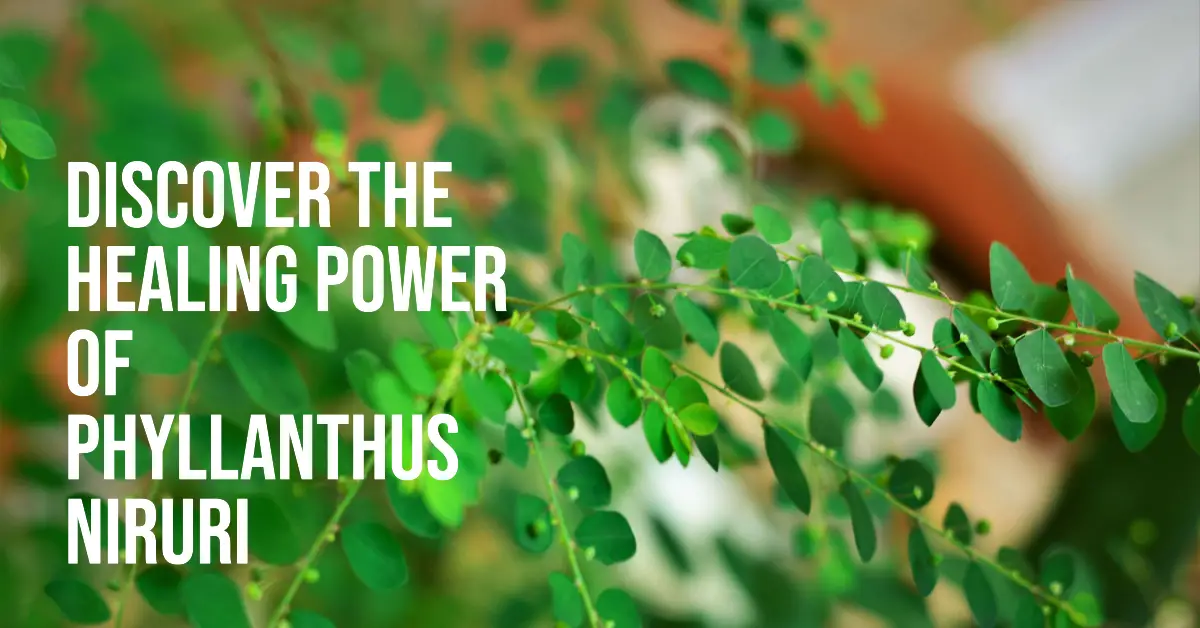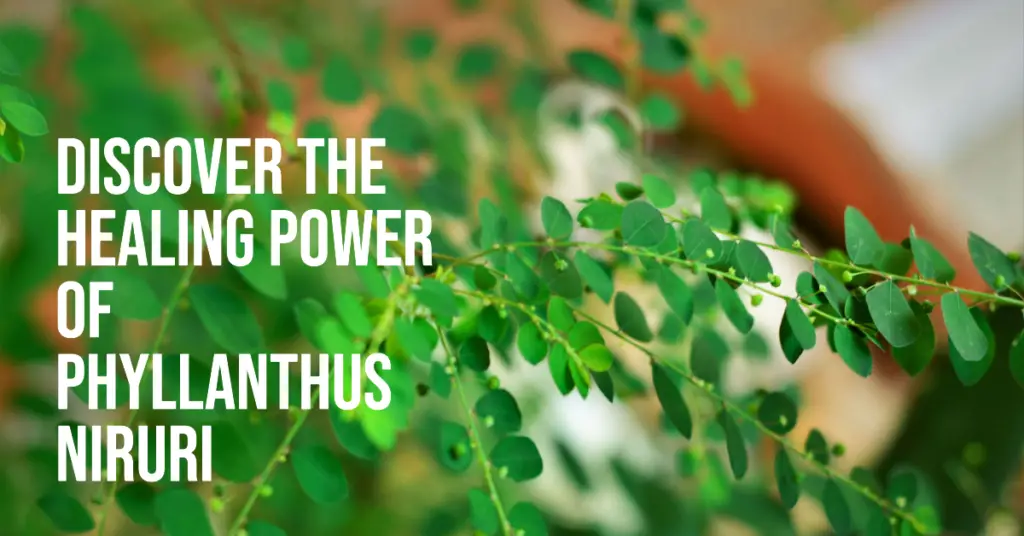
Phyllanthus niruri, also known as stonebreaker or seed-under-leaf, is a small, creeping herb that has been used for centuries in traditional medicine to treat a variety of ailments. It is native to tropical and subtropical regions of the world, and has become increasingly popular in recent years due to its many potential health benefits.

Benefits of phyllanthus niruri
Phyllanthus niruri has been shown to have a number of potential health benefits, including:
- Kidney stones: Phyllanthus niruri may help to prevent and treat kidney stones. It does this by breaking down existing stones and inhibiting the formation of new stones.
- Liver disease: Phyllanthus niruri may help to protect the liver from damage and improve liver function.
- Jaundice: Phyllanthus niruri may help to reduce the symptoms of jaundice, a condition that causes the skin and whites of the eyes to turn yellow.
- Diabetes: Phyllanthus niruri may help to lower blood sugar levels and improve insulin sensitivity.
- High blood pressure: Phyllanthus niruri may help to lower blood pressure.
- Diarrhea: Phyllanthus niruri may help to relieve diarrhea.
- Infections: Phyllanthus niruri may help to fight infections caused by bacteria, viruses, and fungi.
- Cancer: Phyllanthus niruri has been shown to have anti-cancer properties in some studies.
How to use phyllanthus niruri
Phyllanthus niruri can be used in a variety of ways, including:
- Tea: To make phyllanthus niruri tea, simply add 1-2 teaspoons of dried leaves to a cup of hot water and steep for 5-10 minutes.
- Tincture: Phyllanthus niruri tincture can be taken orally or applied topically to the skin.
- Capsule: Phyllanthus niruri capsules are available at most health food stores.
- Powder: Phyllanthus niruri powder can be added to food or smoothies.
Dosage of phyllanthus niruri
The recommended dosage of phyllanthus niruri varies depending on the condition being treated and the form being used. For most conditions, a dosage of 3-6 grams of dried leaves per day is recommended.
Side effects of phyllanthus niruri
Phyllanthus niruri is generally safe for most people to use when taken in recommended doses. However, some people may experience side effects, such as:
- Stomach upset: Phyllanthus niruri can cause stomach upset in some people.
- Diarrhea: Phyllanthus niruri may cause diarrhea in some people.
- Headache: Phyllanthus niruri may cause headache in some people.
- Allergic reactions: Some people may be allergic to phyllanthus niruri. Symptoms of an allergic reaction may include hives, swelling, and difficulty breathing.
If you experience any side effects after using phyllanthus niruri, stop using it and consult with a healthcare professional.
Conclusion
Phyllanthus niruri is a natural herb with a number of potential health benefits. It may be helpful in preventing and treating a variety of conditions, including kidney stones, liver disease, jaundice, diabetes, high blood pressure, diarrhea, infections, and cancer. Phyllanthus niruri is generally safe for most people to use when taken in recommended doses.




